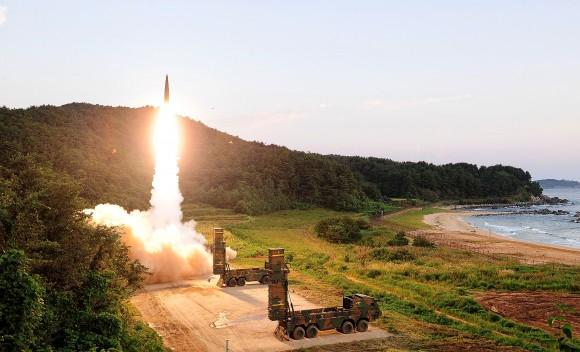Countries are worried North Korea will conduct another nuclear and missile test tomorrow on Saturday, Sept. 9, as the regime celebrates its 69th anniversary of the founding of the Democratic People’s Republic of Korea.
Celebrating national holidays by launching missile tests is a classic North Korean move.
According to The Washington Post, South Korean government officials have reportedly seen signs of another long-range missile test that could possibly be launched this weekend.
Those signs, plus the warning from South Korea’s prime minister on Thursday that they expect another intercontinental ballistic missile (ICBM) launch on Sept. 9 paint a grim picture.
Lee Nak-yon, South Korea’s prime minister said the situation is “very grave” as the National Security Council met on Thursday to discuss plans in case a new missile test occurs, The Washington Post reported.
There was no indication that North Korea’s target is Guam, but the rogue state has threatened to test fire missiles at the U.S. island in the past, NBC News reported.
North Korea’s neighboring countries have already come to expect the communist regime to showcase its military might in tests, especially to celebrate the Day of the Sun in April, the birthday of its founding president.
Last year on Sept. 9, to mark the founding of the Democratic People’s Republic of North Korea it conducted an underground nuclear test, The Washington Post reported.






